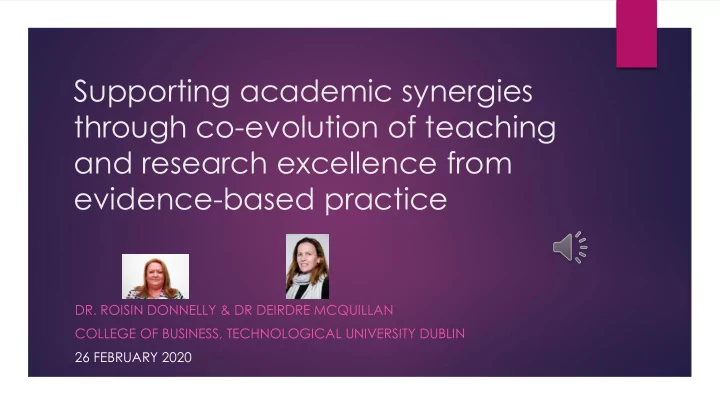

Supporting academic synergies through co-evolution of teaching and research excellence from evidence-based practice DR. ROISIN DONNELLY & DR DEIRDRE MCQUILLAN COLLEGE OF BUSINESS, TECHNOLOGICAL UNIVERSITY DUBLIN 26 FEBRUARY 2020
Context and Challenges Context Challenges New entity: TU Dublin Existing structures: HEA Roles [College of Business] Cultural shift away from silos in Business Education disciplines Identifying Engagement at Synergies: School level: Opportunity for Head of Learning Development Head of Research Teaching, these roles to Learning, work more Educational closely together Research
Co-evolution as an approach to excellence at the nexus of teaching and research Co-evolution is concerned with the logic of understanding how individuals, groups and environments influence each other. Studies consider the influence of the macro on the meso environment, but also on peer to peer groups influence. Coevolution does not have to be about relationship interactions, but also stories or rituals between and across groups Emphasising coevolution means a focus on the process rather than outcomes. Opportunities to create synergies and excellence in process.
A theory of co-evolution What could this look like in an educational Rather than explaining coevolution through different context? theoretical lenses, we draw on a theory of coevolution from the field of evolutionary biology (Thompson, 2005 , Gomulkiewiz et al., 2007b) and sociology (Cherns, 1976 , 1987 , Jessop, 2004 , Norgaard, 2006). Three criteria for coevolution to happen (Thompson, 2005 , Gomulkiewiz et al., 2007b): the existence of co-evolutionary hot and cold spots selection mosaics trait remixing
Recommend
More recommend